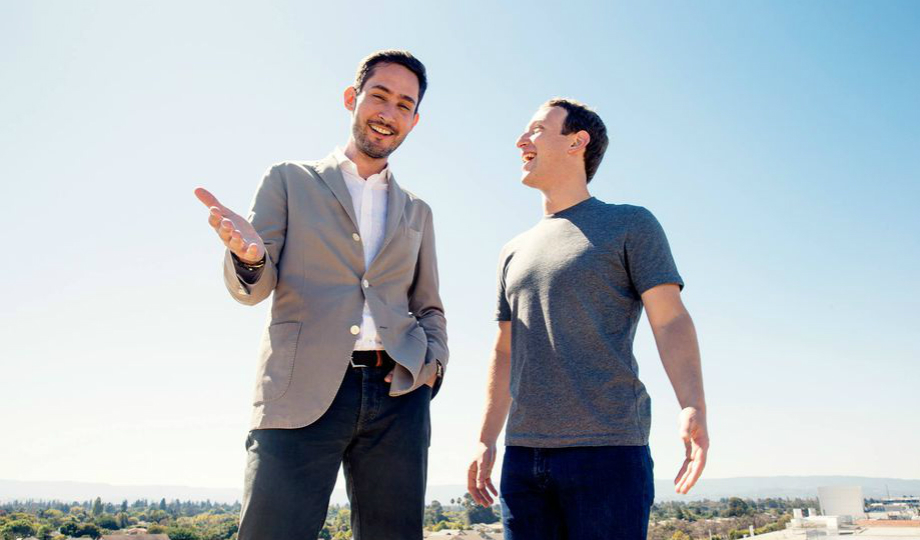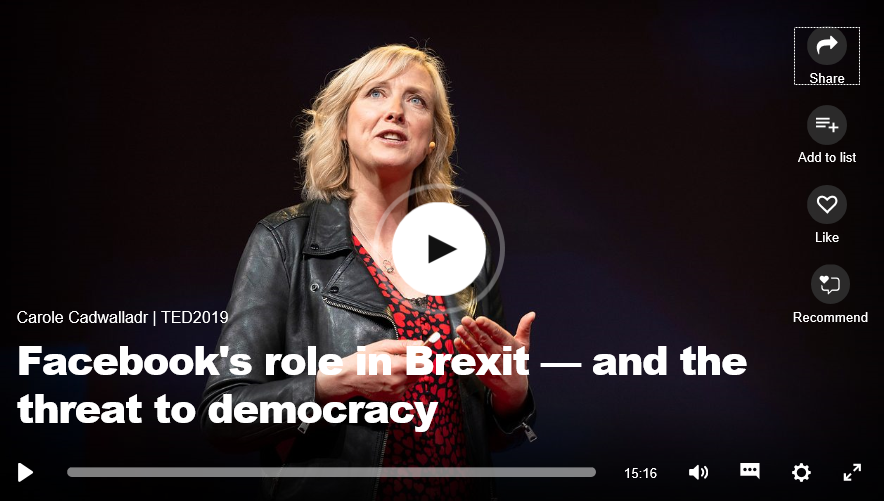If there’s one thing that SXSW, the massive gathering that takes over Austin, Texas every March remains today, it’s a tech trends barometer. Twitter, Foursquare and Periscope were all launched there, after all.
This year, however, as this excellent post from France Télévisions’ Kati Bremme (in French) was first to confirm to me, the big theme of 2019’s edition was not the birth of tech’s next big service. Rather, as, SXSW’s Chief Programming Officer Hugh Forest noted prior to the event, it was tech’s biggest dilemma: “digital distrust“.
And not, as a reminder, because Forest had chosen that theme; SXSW’s panels are largely crowdsourced. Ergo, the tech community itself is scared about the recent abuses of Google, Facebook, Amazon and co. Some of the key sessions were:
- Roger McNamee, a leading Silicon Valley VC and early advisor to Mark Zuckerberg, discussed his new book, “Zucked: Waking up to the Facebook Catastrophe”. In the session (which you can listen to here), he called the proposal from Presidential candidate Elizabeth Warren to break up big tech as “brilliant”; but stopped short of calling on its leaders to resign. “I don’t think this is about the people. I believe that this is about the business model… If you don’t change the business model, it doesn’t matter who’s running it” (quotes via WIRED)

- Elizabeth Warren — a Democratic candidate for the 2020 US election, pictured above via her Facebook page — is as such the most prominent political figure so far to have asserted, on March 8, that big tech should be broken up. And she took to the SXSW stage to remake that assertion. How should the split happen? Essentially by separating ownership of the platforms from ownership of their users. This way, she claims, Amazon could not copy best-selling products of its marketplace vendors and sell them for less; Facebook’s users’ data would not belong to Facebook; and, as Warren writes, “Google couldn’t smother competitors by demoting their products on Google Search”

- Kevin Systrom, the co-founder of Instagram, who left Facebook late 2018 once it was clear his platform’s independence was lost (he’s pictured above in a photo from happier times, from Zuckerberg’s own Facebook account), recognises “we live in a time where the anger against big tech has increased tenfold,” as he told SXSW 2019, according to recode; but “that doesn’t mean that the answer is to break all of the companies up.” Instead, he affirmed, politicians should be “doing what I think politicians should do, which is address real problems and give real solutions.” Because “Amazon white-labelling products and selling them on Amazon” is not the same problem as Russian political interference on Facebook, he argues. In other words, for Instagram’s co-founder, there’s no catch-all solution
- Politicians (other than Warren) were also out in force at SXSW, a further reflection that the time has come for legislators to move forwards with tech regulation. According to ad agency WE Communications, which releases a “Brands in Motion” study every year after surveying 27,000 consumers and brand executives, a resounding 94% of respondents say if brands can’t regulate on their own, the government should step in — it’s “regulate or be regulated”, says WE Communications’ Matt Trocchio.
All of which calls for a long-awaited step-up on the part of politicians, brands and other leading figures, to ensure that technology is well and truly held to account.
And lo and behold, early April — barely a month after SXSW — UK Prime Minister Theresa May announced her government is looking into making social media executives personally responsible for harmful content posted on their networks.
“For too long these companies have not done enough to protect users, especially children and young people, from harmful content,” said May in a statement. “That is not good enough, and it is time to do things differently. Online companies must start taking responsibility for their platforms, and help restore public trust in this technology.”
“The era of self-regulation for online companies is over,” Digital Secretary Jeremy Wright added, saying he wants the sector to be “part of the solution. Those that fail to do this will face tough action,” he promised.
The plans, which also include creating an independent regulator, may well be just a policy paper for now; their progress through parliament may well be helped by this essential and immensely brave TED Talk by The Observer’s Carol Cadwalladr, one of the journalists reponsible for breaking the Cambridge Analytica story (and Pullitzer prize finalist to boot).

“The technology you’ve invented”, she said, addressing all of Silicon Valley’s leaders, “has been amazing. But now it’s a crime scene. And you have the evidence. What the Brexit vote demonstrates is that liberal democracy is broken. And you broke it. You set out to connect people; that same technology is now Driving us apart. This is not a drill; it’s a point of inflection.”
Result: Cadwalladr’s talk has attracted over a million views in just a few days. And an official complaint filed by Facebook – sponsor of the conference – to its organizers. Who offered a ‘right to reply’ session; an offer they didn’t take up.
Whence the starting point of this blogpost: we have reached the tipping point of (ir)responsible technology. Regulation is now inevitable. This, plus the tough stances of Warren, McNamee and other leading political and business figures, suggests that, at last, the times, they are a-changin’. Or at least starting to. Fingers crossed…
Top photo: Freelance work site Trustwork uses Facebook-bashing hashtags to grab attention at SXSW 2019. Photo © José Filho, on flickr
One thought on “Why Time’s up for irresponsible tech”